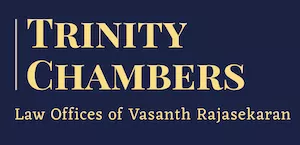- within Litigation and Mediation & Arbitration topic(s)
- in United States
- with readers working within the Law Firm industries
- within Litigation and Mediation & Arbitration topic(s)
- with readers working within the Law Firm industries
- within Government, Public Sector, Real Estate and Construction and Criminal Law topic(s)
INTRODUCTION
In HPCL Biofuels Ltd. v. Shahaji Bhanudas Bhad1, the Supreme Court of India addressed critical issues concerning procedural discipline and the interplay between arbitration and insolvency proceedings. The case arose from a contractual dispute involving claims of unpaid dues and counter-allegations of delayed performance. The Supreme Court ruled that a fresh application under Section 11 of the Arbitration and Conciliation Act, 1996 ("Arbitration Act"), cannot be maintained if an earlier application on the same cause of action was withdrawn unconditionally without seeking liberty to refile. Additionally, the Apex Court clarified that time spent pursuing insolvency proceedings under the Insolvency and Bankruptcy Code, 2016 ("IBC"), cannot be excluded under Section 14 of the Limitation Act, 1963 ("Limitation Act"), for filing a fresh arbitration application. In this article, we delve into the facts of the dispute, examine the Supreme Court's reasoning, and unpack the broader implications of this decision for arbitration practice in India.
FACTUAL BACKGROUND
The appellant, HPCL Biofuels Ltd., is a government-owned company engaged in biofuel manufacturing. It had entered into a contract with the respondent, Shahaji Bhanudas Bhad, for enhancing the processing capacities of its plants in Bihar. Disputes arose when the respondent alleged delayed payments for work completed, while the appellant countered with accusations of delayed execution and substandard performance.
Between 2012 and 2013, multiple purchase orders were issued for turnkey projects. The respondent claimed that despite completing significant portions of the work and raising invoices for over ₹38 crore, the appellant paid only ₹19 crore, leaving a balance of ₹18.12 crore unpaid. The appellant, in response, argued that the respondent's performance was subpar and refused to clear the dues.
The respondent invoked arbitration under the contract's arbitration clause to resolve the disputes. Ultimately, the respondent filed a petition in 2018 for the appointment of an arbitrator under Section 11 of the Arbitration Act. However, before filing the petition under Section 11, the respondent sent a demand notice dated 30.08.2017 under Section 8 of the IBC, thereby invoking insolvency proceedings.
On 01.10.2018, the respondent withdrew the petition under Section 11 of the Arbitration Act on its own volition. Accordingly, the petition came to be disposed of as withdrawn.
In the meantime, the insolvency petition filed by the Respondent under the IBC was rejected on the grounds that a pre-existing dispute rendered the claim unsuited for insolvency adjudication.
Following this setback, the respondent filed a fresh Section 11 application in 2022, which the Bombay High Court allowed. The appellant challenged this decision before the Supreme Court.
KEY LEGAL ISSUES
The central issue that arose before the Supreme Court was the maintainability of the fresh Section 11 application. The question arose whether a party, having withdrawn an earlier application under Section 11(6) without seeking liberty to refile, could subsequently file another application based on the same cause of action. The Supreme Court examined whether such a practice would undermine procedural discipline and encourage repetitive or frivolous litigation, ultimately impacting the efficiency of arbitration.
Another point of contention was the applicability of Section 14 of the Limitation Act, 1963. This provision permits the exclusion of time spent in bona fide legal proceedings before an incompetent forum when calculating the limitation period for a subsequent application.
The Supreme Court had to determine whether the time the respondent spent pursuing insolvency proceedings under the IBC could be excluded for the purpose of filing a fresh Section 11 application.
SUPREME COURT'S ANALYSIS
Maintainability of fresh Section 11 Application
At the heart of the appellant's argument was the principle underlying Order 23 Rule 1 of the CPC. This provision allows plaintiffs to withdraw suits but imposes conditions on refiling. Specifically, a fresh suit is barred unless permission to refile is expressly granted by the Court at the time of withdrawal. While the CPC does not directly govern arbitration proceedings, its principles have often been extended to arbitration to ensure procedural discipline and prevent misuse of judicial processes.
The Court agreed that the principles of Order 23 Rule 1 could apply to Section 11 petitions. It observed that unconditional withdrawal of a Section 11 application, without liberty to refile, precludes a party from filing a fresh application based on the same cause of action. This prevents frivolous and repetitive litigation, safeguards judicial resources, and avoids the potential for forum shopping.
However, the Supreme Court clarified that invoking the same arbitration clause for disputes arising from distinct causes of action remains permissible. In this case, the disputes presented in both applications were identical, making the fresh Section 11 petition non-maintainable.
Exclusion of Time Under Section 14 of the Limitation Act
The respondent sought to exclude the time spent pursuing insolvency proceedings under Section 14 of the Limitation Act, which permits exclusion of time spent in bona fide proceedings before an incompetent forum. The Supreme Court scrutinised whether the respondent's choice to pursue remedies under IBC was a bona fide mistake or a tactical decision.
The Supreme Court highlighted the fundamental differences between insolvency proceedings and arbitration. Insolvency proceedings are in rem proceedings aimed at resolving a company's bankruptcy, whereas arbitration is a private dispute resolution process focused on individual claims arising from disputes inter se two contracting parties. Given these distinct objectives, the Supreme Court ruled that the time spent in insolvency proceedings could not be excluded under Section 14 of the Limitation Act for the purpose of filing a Section 11 application. The respondent's decision to pursue IBC remedies was a conscious choice, not a bona fide error.
Limitation and Deadwood Claims
The Supreme Court reiterated that the limitation period for filing a Section 11 application is governed by Article 137 of the Limitation Act, which prescribes a three-year period from the date the right to apply accrues. In this case, the cause of action arose in 2014 when the appellant denied the respondent's claim. Since the fresh Section 11 petition was filed in 2022, it was clearly time-barred.
Moreover, the Supreme Court emphasised that arbitration cannot be used to revive dead claims. Referring to past judgments, it observed that stale claims not actively pursued within the limitation period undermine the efficiency of arbitration. Consequently, both the fresh application and the claims sought to be referred to arbitration were deemed time-barred.
Judgment and Directions
The Supreme Court allowed the appeal and overturned the Bombay High Court's decision to appoint an arbitrator. In doing so, the Court made it clear that a fresh application under Section 11 of the Arbitration Act is not maintainable if an earlier application was withdrawn unconditionally without explicit liberty to refile.
Additionally, the Supreme Court determined that arbitration, being governed by strict timelines under the Limitation Act, does not permit the revival of stale claims. Consequently, both the Section 11 petition and the underlying claims were dismissed.
Implications for Arbitration Practice
This judgment carries significant implications for arbitration in India, particularly in reinforcing procedural discipline and clarifying the interplay between arbitration and other legal remedies.
The decision also establishes clear boundaries between arbitration and other legal remedies, particularly insolvency proceedings. By highlighting the distinct purposes of these remedies, the Supreme Court has stressed on the need for parties to carefully evaluate the suitability of their chosen forum before initiating legal action.
Conclusion
The Supreme Court's ruling sends a clear message about the sanctity of procedural discipline in arbitration. As arbitration continues to evolve as a preferred mechanism for resolving commercial disputes, this judgment provides valuable clarity on the limits of judicial intervention and the need for adherence to statutory timelines.
Footnote
1. 2024 INSC 851.
The content of this article is intended to provide a general guide to the subject matter. Specialist advice should be sought about your specific circumstances.



